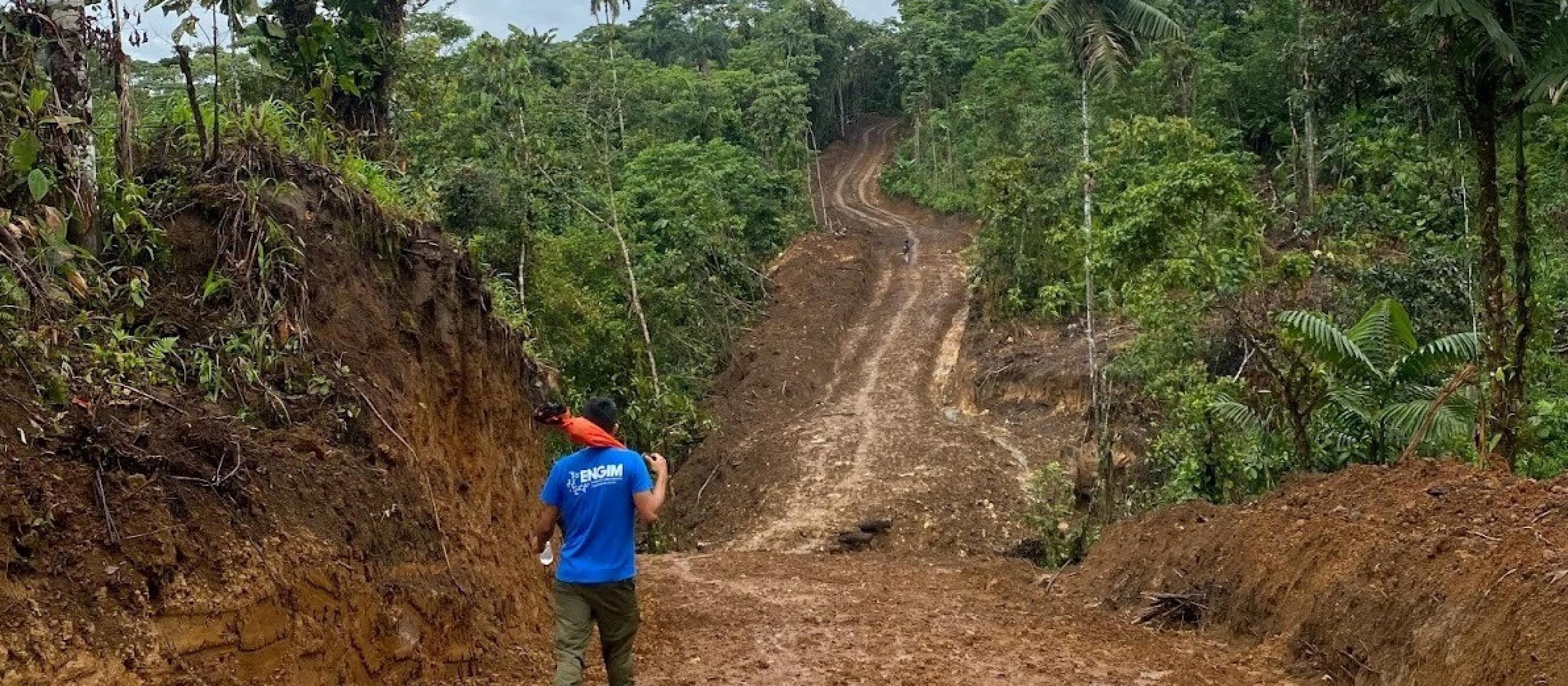CIVIL SERVICE WITNESSES: MARIAGRAZIA'S STORY
‘’Living with Pachamama’’, by Mariagrazia Piscicelli, Servizio Civile, Tena (Ecuador)
July 20 should have been the day of my departure, but something changed the plans. A global IT failure caused disruptions across various sectors, including transportation, and so the flight to Quito, which was originally scheduled with two layovers, turned into an itinerary with three stops in two different countries before reaching the final destination. This was how my experience in Ecuador began.
Latin America, Ecuador, the Amazon: a completely new context for me, an overwhelming land, an all-encompassing experience. From the very beginning, my days here have been marked by the breathtaking landscape that lies before the window of my room: an endless jungle meeting the sky on the horizon, a boundless green intertwined with shades of light shifting according to the time of day and the weather. The sun’s rays enter my room early in the morning, accompanied by the timid sounds of the fauna that never cease to sing: the performers change, but the background remains alive and present, from dawn to dusk. Casa Bonuchelli wakes up very early, as for the locals it is nature that dictates our waking and sleeping rhythms. Some head to the fields, others to schools, others to the comunidades, and others to the office. A daily life that, by definition, carries something routine—yet every day is unique, distinct. One can never grow accustomed to such biodiversity inhabiting Napo: such rich flora and fauna, the countless pueblos who live on this land, so much life.
The ultimate protagonist of this land is the Pachamama, which in Kichwa means “Mother Earth,” endowed with a sacredness recognized and respected by those born here, by those who are hijos de la selva. The relationship between the children of the Amazon and the Pachamama is one of devotion, unmistakable even to the inexperienced eye of those from distant lands. The ease with which children climb trees, dive into the río, and the way young people and adults cultivate the land following the Chakra system—these all tell a story. A way of life, a collection of anecdotes and ancestral knowledge passed down through generations, of which the pueblos indígenas are both bearers and guardians.
The uniqueness of life in this territory was made even more intense by particular socio-political circumstances that unfolded during my stay: from a climate crisis to new presidential elections, from significant national events to international political developments with immediate repercussions in the country. My training in facing the unexpected, which began with the canceled flight on July 20, continued in Napo. Among the unpredictable events were candlelit dinners caused by nationwide apagones, weekly schedules dictating the availability of electricity, and the social protest in Archidona—the Paro—that paralyzed the region’s roads. The common denominator was the resilience of the population, who stood together in the face of these events. The Paro de Archidona was the most significant event I experienced here: a demonstration of local resistance in which multiple struggles converged—defending Napo’s territory, nature, and the rights of the pueblos indígenas.
After the first months of continuous surprise, such events began to appear as revelations, shedding light on the critical issues that afflict this territory: a region so rich, yet so exploited, with its resources plundered to the detriment above all of nature and the native populations. The beauty of these places intertwines with the struggles of those who seek to protect it, between battles against deforestation and the advance of extractive activities.
And if it is true, as Calle 13 sing, that “Tú no puedes comprar al viento, Tú no puedes comprar al sol, Tú no puedes comprar la lluvia, Tú no puedes comprar al calor,” what remains within the power of those who govern this land, of those who are its children, and of those who merely pass through, is the duty to protect it.


